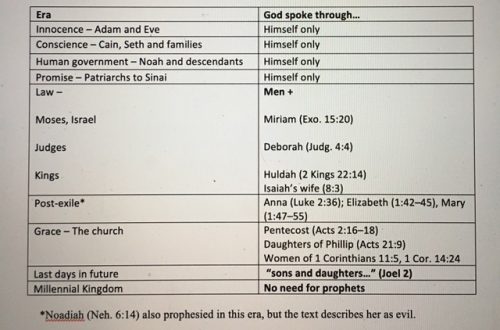Constructive vs Destructive: How Do You Give (and Take) Criticism?
Learning to differentiate between constructive and destructive criticism is required for effective peace-making. We all need correcting. We all battle pride and we all make mistakes, need attitude adjustments, and lose perspective. One measure of our spiritual maturity is whether or not we are open to hearing words of instruction.
Learning to differentiate between constructive and destructive criticism is required for effective peace-making. We all need correcting. We all battle pride and we all make mistakes, need attitude adjustments, and lose perspective. One measure of our spiritual maturity is whether or not we are open to hearing words of instruction.
Constructive criticism is designed to help us grow and minister more effectively. Can you welcome caring confrontation delivered with kindness and a desire to help? For people-pleasers, and perfectionists, it still hurts to be told we are not measuring up. But there are worse things than feeling hurt—like reacting poorly to a rebuke and becoming embroiled in out-of-control conflict.
So swallow your pride and woundedness, grab hold of those emotions, and respond to a rebuke with wise words. If ambushed, you might say, “You could be right” or “I will consider what you have said and get back to you.” Most critics are normal, healthy people who are displeased or hurt and need attention. They need to know that you care about them and that you will listen to their ideas. Become a skilled peacemaker so you will know what do and say, raising the likelihood that the issue ends well for everyone—and most of the time it does. But sometimes constructive turns destructive.
Sometimes your critic isn’t normal or healthy. Or sometimes a normal healthy critic treated badly, ignored or disrespected, like Dr. Jeckel and Mr. Hyde, rapidly transforms into an unrecognizable "dragon." Every situation is different.
Somebody wants something. The major complication is that the issues at the core (personal and selfish desires), get communicated as if they are the cause of Christ. This is not new. Holy wars have been fought with the same dynamics in play. This is further complicated because it’s rarely malice that drives the personal agenda. It’s more often good people who really believe what they are doing (what they want) is right.
The problem is that good people who are attempting to do good things lose sight of the big picture and begin to justify their part of the mission as The Mission. When the situation reaches the state where it does become ugly and wars begin, all perspective is lost and we (after the fact) hear stories of things that happen in local churches that we can hardly believe are true…the church is tremendously wounded. God’s heart is crushed and Christianity gets another black eye.
Our goal is to keep the conflict from escalating into a war, if possible. We nip it in the bud. Part of our task as a skilled peacemaker is to figure out who we are dealing with as soon as possible. Don’t label your adversary as unhealthy too quickly. If you do the reconciliation process will be colored by this assumption.
Communications expert Barbara Pachter has conducted over 1,300 skill-building seminars on topics including conflict resolution. In her book The Power of Positive Confrontation she cautions us:
If you approach a confrontation thinking, “Wow! What a jerk!” you may be setting yourself up for a negative experience. If we’ve decided that someone is a jerk, that means we think he or she has treated us badly, unfairly, unjustly—feelings we don’t like. You can easily end up in the land of aggression when you’re upset. But if you approach a confrontation thinking, “Maybe this person is jerk. Maybe not. I’ll find out what I’m dealing with first,” you are far more likely to have a positive experience. (p 56)
And often it’s not easy. Sometimes our critic is a normal healthy person that we push over the edge by our neglect or foolish responses. Sometime our critic was a “wolf in a spiritual sheep’s clothing” all along. We may never know.
The end result is the same—we are dealing with an unreasonable unhealthy person who is determined to destroy us and the ministry. Remember they don’t believe this about themselves. They justify their actions and whole-heartedly believe they are doing God’s work, which makes them all the more dangerous.
Share your experiences with constructive and destructive conflict. How do you tell the difference? What do you do once you have indentified the difference? Would the Matthew 18:15-17 process be altered? If so, how? We would love to hear your thoughts.


